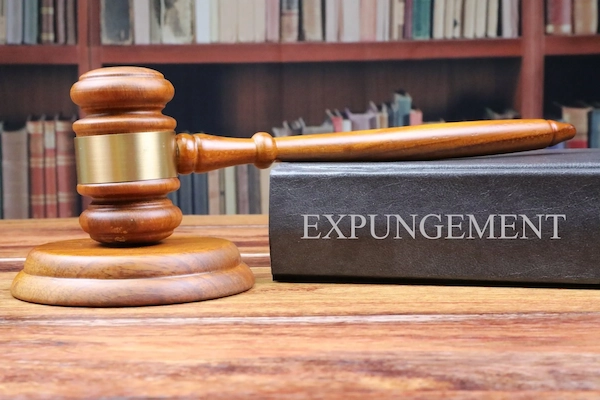If you’re wondering, “are DWI records public in Texas?” you’re probably facing a situation that’s both personal and urgent. Maybe you’ve been charged with a DWI and you’re worried about your job. Maybe you’re doing a background check on a potential hire or a tenant. Either way, the answer is: yes—DWI records are generally public in Texas. But there’s a lot more to the story.
Understanding what appears on a background check, who can access your DWI record, and how long it stays there is critical whether you’re defending your future or reviewing someone else’s. This guide takes an analytical dive into DWI records, offers real-life examples, and explains how Texas law handles transparency, privacy, and redemption when it comes to driving while intoxicated.

What Exactly Is a DWI Record?
Before we break down whether DWI records are public in Texas, let’s define what we mean by a “DWI record.”
In Texas, a DWI (Driving While Intoxicated) record refers to the official documentation of a person’s arrest, charge, and any legal outcome related to driving under the influence of alcohol or drugs. This can include:
- Arrest records
- Police reports
- Court documents
- Plea agreements or trial outcomes
- Sentencing details
- Probation orders
- Driver’s license suspensions
All of these components, when filed in court or with state agencies, become part of the public record unless sealed or expunged.
Are DWI Records Public in Texas? The Short Answer
Yes, DWI records are public in Texas—at least in most cases. Once you are arrested and charged with a DWI, that information becomes part of the public domain. It may be accessible through:
- County clerk’s offices
- Online public court databases
- Third-party background check services
- Law enforcement agencies
- Department of Public Safety (DPS) records
So, if someone searches your name in a public records system, your DWI history could very well show up.
Why DWI Records Are Public: The Legal Reasoning
Texas operates on the principle that government records should be open to the public. The Texas Public Information Act supports the idea that transparency holds law enforcement and the judiciary accountable.
From an analytical perspective, making DWI records public serves a variety of societal functions:
- Employers want to ensure their workforce is safe and reliable.
- Landlords check for red flags before renting out property.
- Courts and prosecutors check for prior convictions to determine sentencing.
- Insurance companies review DWI records before setting premiums.

That said, there are pathways for sealing or even erasing your DWI record under certain conditions, which we’ll get into later.
Real-Life Example: When a DWI Became a Career Roadblock
Let’s talk about Marcus. He was a 29-year-old marketing manager from Houston who got a DWI after celebrating a promotion. One poor choice led to an arrest, court appearance, and 12 months of probation. Fast forward two years—he applies for a new position at a Fortune 500 company.
Everything was perfect—until HR ran a background check. Even though Marcus had fulfilled all legal obligations, the DWI showed up. He wasn’t offered the job. It didn’t matter that it was a one-time mistake. The DWI was public, and it cost him a career move.
This story isn’t rare. Many people think that once they’ve “done their time,” the issue goes away. But the reality is, DWI records in Texas follow you unless you take legal steps to remove them.
What Shows Up in a Background Check?
Here’s a common question: does a single DWI arrest show up the same way as a conviction? Let’s break it down.
Arrests
If you were arrested for DWI—even if the charge was later dismissed—it can still show up in many databases unless expunged. Employers who run comprehensive checks may see the arrest and want an explanation.
Charges and Court Cases
If formal charges were filed and your case went to court, that becomes part of the public court record. Even deferred adjudication or probation outcomes show up unless sealed.
Convictions
If you were convicted of DWI, it’s almost guaranteed to appear in any background check. Whether it’s a misdemeanor or felony DWI, that record will flag criminal conviction data in Texas.
Driver’s License Suspension
Many employers—especially those hiring for positions involving driving—will also see whether your license was suspended due to a DWI arrest or conviction.
Who Can Access Your DWI Record?
The public nature of DWI records doesn’t mean anyone can access every detail. But here’s who typically can:
- Employers conducting pre-employment screening
- Landlords evaluating tenant applications
- Colleges and universities during admission review
- State licensing boards (for teachers, nurses, lawyers, etc.)
- Law enforcement and courts in future legal matters
- Insurance companies for rate calculations
In some cases, curious individuals can also search online court databases or submit public record requests. That’s why controlling access to your DWI record—via sealing or expungement—is so important if you’re eligible.
How Long Does a DWI Stay on Your Record in Texas?
Unless you take action to remove it, a DWI can stay on your public record permanently. Unlike parking tickets or minor infractions, criminal offenses like DWI don’t “fall off” your record after a certain period.
For example:
- A first-time DWI conviction will remain visible indefinitely unless sealed.
- Arrest records without conviction may also be public unless expunged.
- Deferred adjudication outcomes may be sealed with a nondisclosure order—but only under certain conditions.
That’s right: a DWI you got at age 21 could still be causing issues at 41 unless you’ve legally removed it from your record.
Can You Seal or Expunge a DWI Record in Texas?
Yes, but only under limited circumstances. Here’s a quick breakdown of your options:
Expunction
You may be eligible for expunction if:
- You were arrested but never charged
- Your charges were dismissed
- You were acquitted at trial
An expunction completely erases your DWI record as if it never happened. No public agency or private database can legally show or discuss it once expunged.

Order of Nondisclosure
If you received deferred adjudication or were convicted of a first-time, low-level DWI, you might qualify for an order of nondisclosure. This seals your record from most public view, though it remains accessible to government agencies.
The catch? You must complete all sentencing terms and wait a required period (typically 2–5 years). Also, no other criminal convictions during that time.
Real Case: How Sealing Helped One Man Rebuild
Carlos, a school counselor in Dallas, received deferred adjudication after a DWI. His record haunted him every time he applied for certification renewal. With the help of an attorney, he filed for an order of nondisclosure. Two years later, his record was sealed, and he was able to renew his license without red flags popping up.
It didn’t erase the past—but it gave him a fresh start.
How to Find Out If Your DWI Record Is Public
If you want to know whether your DWI shows up in Texas public records:
- Check the Texas DPS criminal history search portal
- Search the local county court website where your case was handled
- Request your full criminal record from the Texas Department of Public Safety
- Run a commercial background check on yourself through a third-party site
This is often the first step before hiring an attorney to seal or expunge your DWI record. Knowing exactly what’s out there is the key to managing it.
The Long-Term Consequences of Public DWI Records
Having a public DWI record can affect:
- Employment opportunities
- Professional licensing (especially in law, healthcare, or finance)
- Child custody and divorce proceedings
- College admissions and scholarships
- Rental housing applications
- Loan approvals and insurance premiums

It’s not just about legal penalties—it’s about reputational and financial fallout. And in today’s data-driven world, almost nothing stays buried unless you legally remove it.
Why Employers Take DWI Records Seriously
From an analytical viewpoint, employers often consider DWI records a sign of poor judgment, even if it’s a first offense. For jobs involving driving, heavy equipment, public safety, or sensitive data, a DWI conviction can raise red flags. Employers are tasked with minimizing liability, and any past criminal behavior tied to impaired judgment can be a deal-breaker.
According to a Society for Human Resource Management (SHRM) report, over 85% of employers run criminal background checks—and nearly 50% disqualify candidates with alcohol-related offenses. This statistic shows just how high the stakes are, even for non-driving positions that place a premium on reliability and responsibility.
That’s why the question “are DWI records public in Texas?” isn’t just theoretical. It’s about whether you’ll land that next job interview. For many applicants, a public DWI record becomes the silent reason their resume is pushed aside—without a second glance.
Conclusion: DWI Records Are Public—But You’re Not Powerless
So, are DWI records public in Texas? Absolutely. But that doesn’t mean your life is over. From sealing to expungement, from understanding your rights to controlling your narrative, you have options.
If you’ve made a mistake, own it—and then do everything you can to minimize its future impact. If you’re an employer or landlord reviewing someone’s DWI record, look at the full picture. People grow. Mistakes are part of life. Redemption should be too.
And if you’re still wondering what your record says? Go look. The truth might sting—but it’s also the first step toward reclaiming your future.

